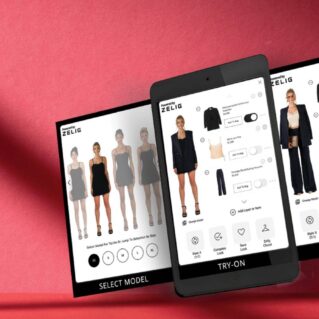Does influencer marketing have a place in direct sales?
The concept of working with celebrities to promote brands is evolving into highly targeted campaigns with online influencers. Influencer marketing is now big business, and according to the experts, it is only going to grow.
What’s Happening:
While consumer buying habits continue to evolve along with brand trust and engagement, money spent on influencer marketing is projected to reach $6.5 billion in 2019. That would more than double the numbers from just two years ago. According to InfluencerMarketingHub.com, Google searches for “Influencer Marketing” grew by 1,500 percent over the last three years. The site also shows that businesses earned an average of $18 in media value for every dollar spent on influencer marketing in 2018.
For now, Instagram is the ultimate social platform for this type of promotion. A Linqia study found that 92 percent of marketers chose Instagram as the most important social platform for influencer marketing. The content is quickly consumed while still allowing time for the right message to get across in the form of compelling images or short videos. Users can follow tags and specific topics of interests, allowing them to quickly connect with others and follow specific influencers they’re interested in.
Defining and identifying the right influencer for your brand and business can fall within a wide range. An online influencer doesn’t have to be someone with hundreds of thousands of followers. In fact, working with someone with a smaller, targeted following seems to be the sweet spot.
Why It’s Working:
“Micro-influencers” can be defined as those with roughly 10,000-100,000 followers with a dedicated niche audience specifically interested in the content the influencer provides. A study by Keller Fay Group showed that micro-influencers have 22.2 times more weekly conversations about things to buy than the average consumer, and 82 percent of survey respondents said they were likely to follow those recommendations.
“For real engagement, you need a micro-influencer,” an article on JeffBullas.com claims. “These are people with specialist interests and smaller audiences who often deliver higher engagement rates than the celebrity influencers… Their audiences not only share their specific interests and values— they trust what micro-influencers have to say about products and services.”
Choosing The Right Influencers:
Authenticity is the secret sauce when working with influencers. Being authentic is what likely built their following and personal brand in the first place. “Fans of an influencer want to believe that there is a genuine connection between the influencer and the ad,” says a Forbes.com article.
When choosing someone to work with, pay attention to their engagement and relationship with the followers. Higher engagement rates (likes, comments, shares, etc.) is a good indicator of a real, organic following of people who trust and listen to the influencer. Look for original, creative content that matches the influencer’s personal brand. They are effective because they understand their audience, know the proper hashtags to target, regularly create engaging content, and know how to attract others to grow their audience.
Most influencers promoting brands want a longer-term partnership in line with their own interests as well as the interests and needs of their followers. Communicate what value you can bring the influencer, such as product samples, early access, or exclusive experiences. It doesn’t have to be just money. Also, be willing to let the influencer get creative with the message or ad.
“Brands should give influencers sufficient creative freedom to keep posts authentic, as it makes posts less likely to be dismissed by users,” says an article on BusinessInsider.com. “Other best practices include repurposing influencer content for multiple platforms, evaluating the audience and following of an influencer, and leveraging data to optimize future campaigns.”
Why It Matters To Direct Selling:
A shift toward word-of-mouth, experience-based online promotion should be welcomed news for direct selling. Genuine, authentic relationships and brand experiences are at the core of the direct sales industry, and that’s exactly what’s working with online influencers.
A study by Influence Central revealed that 86 percent of women are going online for shopping advice. Taking advice from influencers can be a nearly identical experience to direct sellers communicating with and influencing their customers. The connection and relationships are built on trust.
So, would partnering with an influencer in your industry replace an independent distributor? Not at all.
A direct selling company could use an influencer to help build the overall brand, generate buzz for a product launch, or document their experience going through a program. Some influencers may cross several social platforms with multiple audiences. Focusing on the right special platforms can greatly depend on your product or service. The beauty and makeup category is a natural fit for Instagram, while health and fitness might match better with a YouTube influencer.
An Expert Sums It Up:
“I think influencer marketing is going to have an incredible global era for the next decade, and we’re just at the beginning of it. Every day there are brands that go from $0 to $15 million in sales with no overhead or infrastructure on the back of influencers on Instagram. If you’re not working with influencers, you need to be,” says Gary Vaynerchuk.



